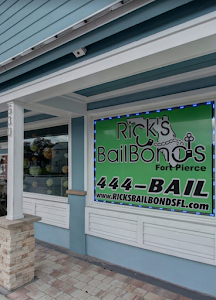What is a Bail Bond?
A Bail Bond is a type of surety bond provided through a bail agent or Bail Bondsman that secures the release of a defendant from jail. There are two types of Bail Bonds:
Criminal Bail Bond: used in criminal cases and guarantees that a defendant appear for trial when called upon by the court and guarantees payment for any fines or penalties that are decided against the defendant.
Civil Bail Bond: used in civil cases and guarantee the payment of the debt, plus interest and costs, assessed against the defendant.
The judge sets a bail amount. If the defendant cannot pay the bail amount on their own, they can seek help from us, a Bail bondsman in the form of a Bail Bond.
Do you provide a free warrant search?
Yes, call us for a free warrant search at 772-444-2245. We will perform your search in Fort Pierce, St Lucie County or anywhere. If you have a warrant, ask about our warrant walkthrough. A warrant walkthrough gets you out of jail much faster than if you have to be bailed out ,after being picked up by the police when you least expect it.
How long does it take to get out of jail?
With our “Instant Bail” electronic forms, you use your phone to get out of jail. It takes approximately 15 minutes to complete and sign. You can do it from your smart phone or computer. The release time after the jail receives our paperwork is generally one hour or less for local police stations and 2-4 hours for county jails. Generally speaking, the busier the holding facility, the longer it takes.
You usually can for traffic and minor violations. While a few jurisdictions do allow cash bail by a citizen if he/she signs an appearance guarantee and/or posts the entire bail, most states now require a licensed bond agent to guarantee it. This is the case in St Lucie County. This way, the state knows it can instantly collect the entire bond amount plus it can put the burden of apprehending those who fail to appear on the bond agency. Put another way, most states do not hassle with collateral and property; they collect bail forfeitures in cash.
What is and is not good collateral?
Unencumbered Real Estate
Items of major collateral such as a car, boat, motor home, etc. are deemed good, but must be surrendered to the bail agent who will hold them in a secure place. These items are normally valued at their current resale value, not what you originally paid for them.
Personal items of high value such as jewelry, firearms, computers, cameras, stereos, etc. can be used as collateral, but like items of major collateral, must be surrendered to the bail agent who will hold them in a safe or other secure place. These items are normally valued at their current resale value, not what you originally paid for them.
Items that are not considered good collateral:
A house that you are still paying a mortgage on. We can work with you, but it takes some time.
Any item (such as a car) that you have purchased on credit in which the lender holds the title and you make payments to.
When do I get my collateral back?
Upon completion of the court case.
This happens when: the charges are dropped, the person is found innocent at trial, or the person is sentenced to probation/jail time.
Of course, the collateral will only be returned if there is no outstanding balance due on the premium. The bail bond agent has a fiduciary (formal legal) responsibility to safeguard all collateral.
What are the chances that a person will be released on their own recognizance?
PR (Personal Recognizance) release practices vary widely by court jurisdiction. Generally, the more severe the charge, the less likely to PR release is.
A judge is likely to consider a person’s stability in the community and their employment when setting bail. However, you should also know that bail and PR release standards have been raised in domestic dispute cases over the past few years. Some states now even have “mandatory cooling off” periods in which bail is not immediately granted for these types of cases.
What happens if the person does not appear in court as promised?
A bench warrant is issued for the person’s arrest and the person’s name will appear in police bulletins as a fugitive. Although specifics vary depending on the jurisdiction, generally the court also authorizes the bail agency arrest authority for the individual as well.
The bail agency normally calls the person’s home, work, and other references to try to find the fugitive and convince them to appear. If these efforts are unsuccessful, the agency may then search and employ apprehension specialists (private investigators) to arrest the fugitive.
From the perspective of someone who guaranteed the appearance by posting collateral, you want to convince the fugitive to surrender himself/herself to the police or court as soon as possible. Normally, if the fugitive is returned before actual remittance to the state, you can usually get your collateral back.
If the fugitive does not surrender and cannot be found by the forfeiture date, the bail agency remits the entire bond to the court and proceeds with legal action to (seize, if necessary and) liquidate your collateral. By law, the bail agency is required to refund any value received in excess of the bail amount following liquidation.
Because Rick Bail Bonds is very experienced we do not bail out hardened criminals; we have one of the best rates in the country. We also have some of the best private investigators in the business that have apprehended major felons and fugitives for other agencies. As a guarantor, you will be glad that we are good at what we do.
 772-444-BAIL (2245)
772-444-BAIL (2245)













































































